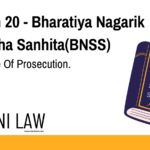Code:
(1) When any offence is committed in the presence of a Magistrate, whether Executive or Judicial, within his local jurisdiction, he may himself arrest or order any person to arrest the offender, and may thereupon, subject to the provisions herein contained as to bail, commit the offender to custody.
(2) Any Magistrate, whether Executive or Judicial, may at any time arrest or direct the arrest, in his presence, within his local jurisdiction, of any person for whose arrest he is competent at the time and in the circumstances to issue a warrant.
Explanation:
This section empowers a Magistrate to arrest a person without a warrant in certain situations:
- When a person is committing, or attempting to commit, a non-bailable offence: In such cases, the Magistrate can arrest the person directly, without needing a warrant.
- When a person is reasonably suspected of having committed a non-bailable offence: If there is sufficient reason to believe that the person has committed a non-bailable offence, the Magistrate can arrest them.
- When a person has been proclaimed as an offender under Section 82 or Section 83 of the CrPC: When a person has been declared a proclaimed offender by a court due to their failure to appear, the Magistrate has the power to arrest them.
- When a person is a habitual offender: A person with a history of committing offences can be arrested by a Magistrate under certain circumstances.
- When a person is apprehended for an offence punishable with death or imprisonment for life, or for an offence under Section 153A or Section 153B of the Indian Penal Code (IPC): These offences are related to promoting enmity between different groups, and the Magistrate has the authority to arrest individuals suspected of committing these crimes.
Illustration:
A Magistrate can arrest a person without a warrant if they witness that person attempting to steal a car, as stealing a car is a non-bailable offence.
Common Questions and Answers:
Q: Can a Magistrate arrest a person for a bailable offence?
A: No, a Magistrate cannot arrest a person for a bailable offence without a warrant.
Q: Is the Magistrate required to produce the arrested person before a court?
A: Yes, the Magistrate must produce the arrested person before a court within 24 hours of arrest.
Q: What are the rights of the arrested person?
A: The arrested person has the right to be informed of the grounds of arrest, to be produced before a court within 24 hours, and to have access to legal representation.







